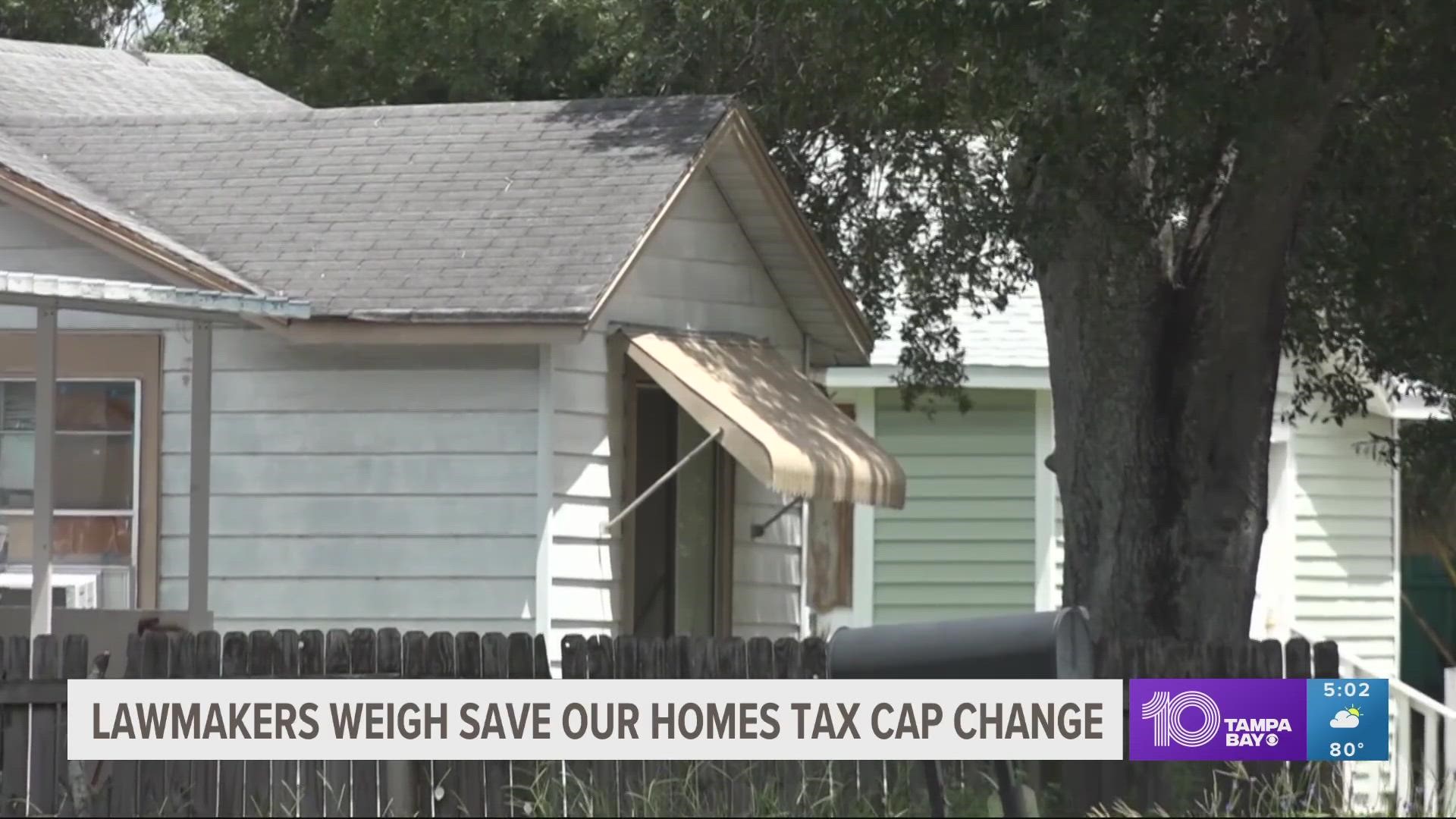TAMPA, Fla. — If you own a home, chances are you familiar with Florida’s “Save Our Homes“ exemption.
It limits the amount property taxes can increase per year regardless of how much the property’s value might have risen. Now, some state lawmakers want to lower that cap even further, but the idea has some worried about potential consequences.
The current annual tax cap for homesteaded property thanks to “Save Our Homes” is 3%. A proposed bill in the upcoming legislative session would lower that cap to 2%.
That’s good news for people who already own a home. But it’s also raising concerns about revenues, services and people who don’t own their own homes.
The estimated statewide revenue loss is around $150 million.
In a county like Hillsborough County, lowering the save our homes cap could mean about $10 million less tax revenue per year.
“You may look at the first year and say that’s only $10 million. We can absorb that. But if you start looking at $10 million every year over the course of 20 years, now it becomes a larger number,” said Hillsborough County Property Appraiser Bob Henriquez.
Henriquez says in larger counties, they might be able to offset that since annual budgets regularly reach into the billions. But in medium and smaller counties with lots of homesteaded properties, he predicts they might see a strain on their budgets.
“It’s probably good politics. Whether it’s a good policy, we’ll see,” Henriquez said.
Critics say it’s unlikely local governments will simply absorb the loss.
Instead, they think it’s more likely the tax burden will be shifted to the non-homesteaded property owners who, in turn, might then pass those increases through to already weary tenants.
“It’s going to give, yeah, possibly give corporate landlords or even smaller landlords you know, the justification to raise rents,” said William Kilgore with the St. Petersburg Tenants Union.
Kilgore says it’s another reason his organization is pushing for government-owned not-for-profit affordable public housing.
“Maybe some of these corporate landlords do need taxes going up on them because either way they are going to be raising rent and they are making record profits right now in real estate development,” he said.
The bill’s sponsor, State Sen. Bryan Avila, R-Hialeah, told the News Service of Florida, “There will be an impact. But the other side of this is that the Florida legislature has continuously made decisions in order to prioritize our residents and make sure that the cost of living is low.”
Even if the bill were to pass, it would require a constitutional amendment to go into effect. That means voters would have to sign off for it first with a statewide referendum requiring at least 60% approval to pass.

